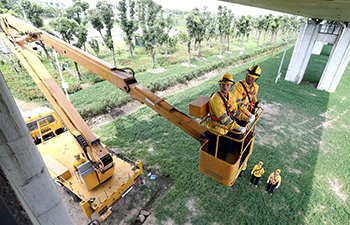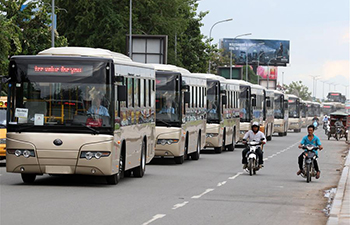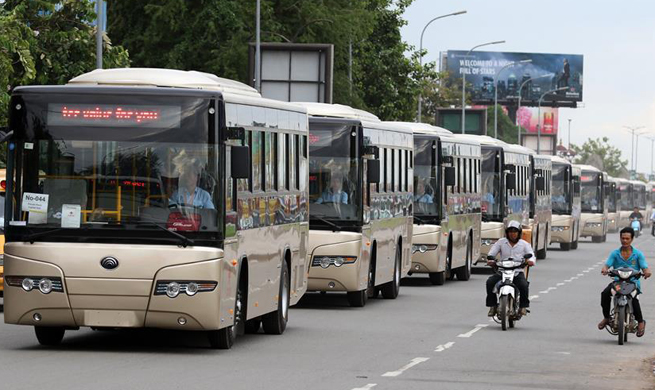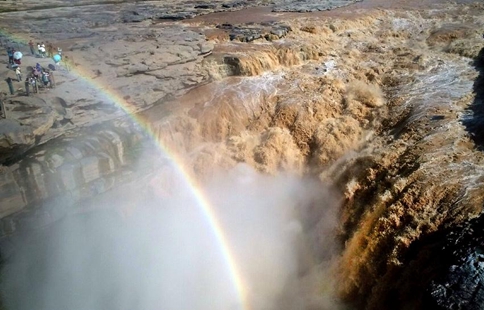MANILA, July 14 (Xinhua) -- A new Asian Development Bank (ADB) study released on Friday projected a temperature rise of 6 to 8 degrees Celsius by the end of century in parts of Asia-Pacific, threatening to erode the region's development gains.
The study, titled A Region at Risk: The Human Dimensions of Climate Change in Asia and the Pacific, warns that the unabated climate change could bring "devastating consequences" to the region that could threaten to reverse current developmental gains in the region.
Under a business-as-usual scenario, the study projects a 6 degrees Celsius temperature increase over the Asian landmass by the end of the century.
Some countries in the region could experience significantly hotter climates, with temperature increases in parts of Central Asia projected to reach 8 degrees Celsius, the study claims.
Bambang Susantono, ADB vice president for Knowledge Management and Sustainable Development, said these increases in temperature would lead to drastic changes in the region's weather system, agriculture and fisheries sectors, land and marine biodiversity, domestic and regional security, trade, urban development, migration, and health.
The study also predicts a more intense typhoons and tropical cyclones to hit the region with rising global mean temperatures.
It says under a business-as-usual scenario, annual precipitation is expected to increase by up to 50 percent over land areas in the region, although some countries may experience a decline in rainfall by 20 to 50 percent.
"The global climate crisis is arguably the biggest challenge human civilization faces in the 21st century, with Asia and Pacific region at the heart of it all," Susantono told a news conference at the ADB headquarters in Manila.
Home to two-thirds of the world's poor and regarded as one of the most vulnerable region, Susantono said countries in Asia and the pacific region are the highest at risk of plummeting into deeper poverty - and disaster - if mitigation and adaptation efforts are not quickly and strongly implemented.
The study also says coastal and low-lying areas in the region will be at an increased risk of flooding.
"Nineteen of the 25 cities most exposed to a one-meter sea-level rise are located in the region, seven of which are in the Philippines alone. Indonesia, however, will be the most affected country in the region by coastal flooding with approximately 5.9 million people expected to be affected every year until 2100," the report says.
It says increased vulnerability to flooding and other disasters will significantly impact the region - and the world - economically.
The report also warns that climate will make food production in the region more difficult and production costs higher.
The report says warmer weather could also affect marine ecosystems, particularly in the Western Pacific, which will be in serious danger by 2100.
The report says climate change also poses a significant risk to health in Asia and the Pacific.
Citing data from the World Health Organization (WHO), it says heat-related deaths in the region among the elderly are expected to increase by about 52,000 cases by 2050 due to climate change.
"Deaths related to vector-borne diseases such as malaria and dengue may also increase," the report says.
"A business-as-usual approach to climate change could also disrupt functioning ecosystem services, prompting mass migration - mostly to urban areas - that could make cities more crowded and overwhelm social services," the report says.
ADB approved a record 3.7 billion U.S. dollars in climate financing in 2016 and has committed to further up its investments to 6 billion U.S. dollars by 2020.

















